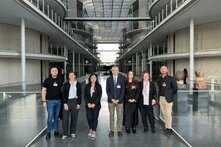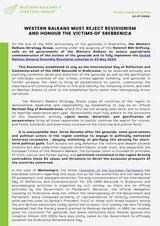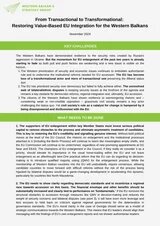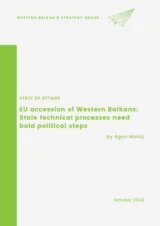Democracy
The Heinrich Böll Foundation has been active in Bosnia-Herzegovina since 1999. As a German political foundation close in its orientation to Alliance 90 / The Greens, we advocate for fundamental values such as democracy, peace and non-violence.
Because we understand ethnic and cultural diversity as an integral part of a democratic culture, we attach great importance to the integration of Bosnia and Herzegovina into the European Union, and in this sense we are committed to strengthening the rule of law and citizens' democratic participation the socio-political community.
Strengthening civil society, equal participation of women in social and political life, addressing the recent past and supporting democratic political dialogue are some of our key program objectives.








